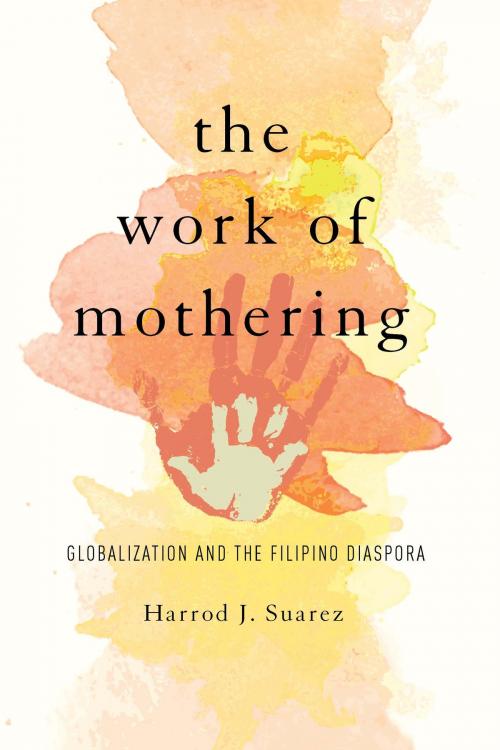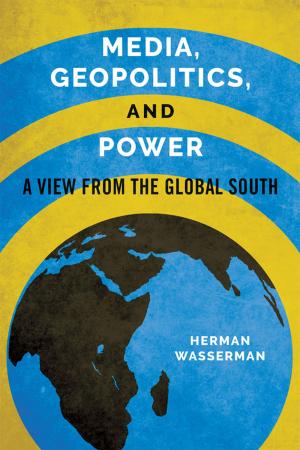The Work of Mothering
Globalization and the Filipino Diaspora
Nonfiction, Social & Cultural Studies, Social Science, Cultural Studies, Ethnic Studies, Gender Studies, Women&| Author: | Harrod J Suarez | ISBN: | 9780252050046 |
| Publisher: | University of Illinois Press | Publication: | October 16, 2017 |
| Imprint: | University of Illinois Press | Language: | English |
| Author: | Harrod J Suarez |
| ISBN: | 9780252050046 |
| Publisher: | University of Illinois Press |
| Publication: | October 16, 2017 |
| Imprint: | University of Illinois Press |
| Language: | English |
Women make up a majority of the Filipino workforce laboring overseas. Their frequent employment in nurturing, maternal jobs--nanny, maid, caretaker, nurse--has found expression in a significant but understudied body of Filipino and Filipino American literature and cinema. Harrod J. Suarez's innovative readings of this cultural production explores issues of diaspora, gender, and labor. He details the ways literature and cinema play critical roles in encountering, addressing, and problematizing what we think we know about overseas Filipina workers. Though often seen as compliant subjects, the Filipina mother can also destabilize knowledge production that serves the interests of global empire, capitalism, and Philippine nationalism. Suarez examines canonical writers like Nick JoaquÃn, Carlos Bulosan, and Jessica Hagedorn to explore this disruption and understand the maternal specificity of the construction of overseas Filipina workers. The result is readings that develop new ways of thinking through diasporic maternal labor that engages with the sociological imaginary.
Women make up a majority of the Filipino workforce laboring overseas. Their frequent employment in nurturing, maternal jobs--nanny, maid, caretaker, nurse--has found expression in a significant but understudied body of Filipino and Filipino American literature and cinema. Harrod J. Suarez's innovative readings of this cultural production explores issues of diaspora, gender, and labor. He details the ways literature and cinema play critical roles in encountering, addressing, and problematizing what we think we know about overseas Filipina workers. Though often seen as compliant subjects, the Filipina mother can also destabilize knowledge production that serves the interests of global empire, capitalism, and Philippine nationalism. Suarez examines canonical writers like Nick JoaquÃn, Carlos Bulosan, and Jessica Hagedorn to explore this disruption and understand the maternal specificity of the construction of overseas Filipina workers. The result is readings that develop new ways of thinking through diasporic maternal labor that engages with the sociological imaginary.















